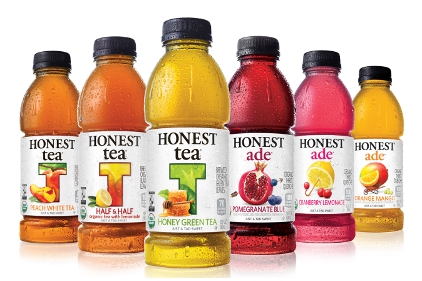Bethesda, Md.-based Honest Tea, an independent operating unit of The Coca-Cola Co., released its 2013 Mission Report as part of the company’s ongoing efforts to be transparent about its business practices and its mission “to seek to create and promote great-tasting, healthier, organic beverages.” Using data from the 2012 calendar year, the company increased purchases of organic ingredients by more than 500,000 pounds for a total of 4.9 million pounds, which is 13 percent more than the previous year and more than six times the amount purchased from 2007, the report states. It also highlights the company’s efforts and challenges to promote organics and reduce its environmental footprint.
For instance, within the last year, Honest Tea has reformulated its Honest Kids line by removing the organic cane sugar and increasing the organic fruit juice content. In order to implement such a major ingredient change, the company had to work with suppliers in Turkey, Argentina and the United States to procure an adequate amount of juice.
It also has expanded its The Great Recycle campaign since the company’s inaugural event in New York City’s Times Square. By May 2013, the Honest Tea team had traveled to seven states collecting more than 70,000 beverage containers, keeping plastic, glass and aluminum containers of all shapes and sizes out of landfills and recycling them according to the guidelines of the specific jurisdictions.
Since 2003, Honest Tea has contributed more than $397,000 in Fair Trade premiums by reinvesting in education, agriculture and community projects where the tea is sourced. In 2012 and 2013, the company increased the amount of its Fair Trade premiums by 19 percent compared with the previous year.
“There is no such thing as a socially responsible business, because that term suggests that an enterprise has reached a destination and there is no more work to be done,” said Honest Tea Co-founder and TeaEO Seth Goldman in a statement. “Our annual mission report helps Honest Tea and its stakeholders understand where we’ve made progress and how much more work we have to do. Our progress in growing the demand and the supply of organic ingredients helps illustrate that our efforts to democratize organic and healthy beverages are bearing some fruit, but there is still more work to be done.”
Honest Tea releases 2013 Mission Report
Report highlights company’s efforts to promote organics and reduce environmental footprint


